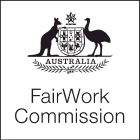
| [2020] FWCFB 6341 |
| FAIR WORK COMMISSION |
STATEMENT |
Fair Work Act 2009
s.156 - 4 yearly review of modern awards
4 yearly review of modern awards
(AM2018/18; AM2018/20)
JUSTICE ROSS, PRESIDENT |
MELBOURNE, 26 NOVEMBER 2020 |
4 yearly review of modern awards – Award stage – Group 4 awards – Children’s Services Award 2010 – Educational Services (Teachers) Award 2020 – Substantive issues.
Background
[1] On 10 June 2020 we issued a decision 1 (the June decision) in which we determined a number of claims to vary the Children’s Services Award 2010 (Children’s Services Award) and the Educational Services (Teachers) Award 2020 (Teachers Award). We issued two further decisions on 19 October 20202 and 28 October 2020.3 A variation determinations was issued on 29 October 2020.4 This statement deals with two residual issues.
[2] On 4 November 2020 the United Workers’ Union (UWU) wrote to the Fair Work Commission 5 advising the following:
• the Children’s Award had not been varied to delete clause 18.1(e) as set out in the June decision (the ‘Higher Duties issue’); and
• prior to the determination PR724049, clause A.3.2 of Schedule A of the Teachers Award (Hours of Work and Related Matters—Teachers employed in early childhood services operating for at least 48 weeks per year) reflected clause 21.5 of the Children’s Award (the ‘Non-contact time issue’).
Higher duties issue
[3] The first issue relates to a claim made by the UWU to delete clause 18.1(e) of the Children’s Services Award, which provides:
‘18.1 An employee engaged in duties carrying a higher rate than their ordinary classification for two or more consecutive hours within any shift or day will be paid for the time so worked at the higher rate provided that:
…
(e) an employee who is required to undertake the duties of another employee by reason of the latter employee’s absence for the purpose of attending (with pay) an approved training course (including in-service training) will not be entitled to payment under this clause.’
[4] At [445] of the June decision we granted the UWU’s claim and said:
‘The modern awards objective is to ‘ensure that modern awards, together with the NES, provide a fair and relevant minimum safety net of terms and conditions’, taking into account the particular considerations identified in ss.134(1)(a)–(h). We have taken into account those considerations, insofar as they are relevant to the matter before us, and we are satisfied that it is necessary to vary the Children’s Services Award in the manner proposed in order to achieve the modern awards objective. We will vary clause 18.1 by deleting clause 18.1(e).’
[5] This issue was an inadvertent omission from the 29 October 2020 variation determination.
[6] A draft determination giving effect to the June decision will be issued with this statement. Comments are to be sent to amod@fwc.gov.au by 4pm on Friday, 11 December 2020. If no comments are received, we will issue the determination in final form.
Non-contact time issue
[7] The second issue relates to non-contact time. In the June decision we granted a claim made by the UWU to provide an additional two hours non-contact time for Educational Leaders under the Children’s Award. 6 Clause 21.5(a) was varied7 on 1 November 2020 and now provides:
‘21.5 Non-contact time
(a) An employee responsible for the preparation, implementation and/or evaluation of a developmental program for an individual child or group of children will be entitled to a minimum of two hours non-contact time per week. During non-contact time, an employee will not be required to supervise children or perform other duties as directed by the employer.
(b) An employee appointed as the Educational Leader will be entitled to a minimum of two hours non-contact time per week. During non-contact time, an employee will not be required to supervise children or perform other duties as directed by the employer.
NOTE 1: Educational leader is defined in Regulation 118 of the Education and Care Services National Regulations (2011).
NOTE 2: The entitlements at clauses 21.5(a) and 21.5(b) are cumulative. An Educational Leader who also has programming responsibilities for an individual child or group of children will be entitled to a minimum of four hours non-contact time per week.’
[8] The UWU submit that the variation of clause 21.5 of the Children’s Award, but not clause A.3.2 of the Teachers Award, creates an unintended inconsistency in the application of the June decision and the two Awards.
[9] Interested parties are invited to file submissions in response to the UWU’s submissions concerning the non-contact time issue and clause A.3.2 of the Teachers Award. Submissions are to be sent to amod@fwc.gov.au in word format by 4pm on Friday, 11 December 2020. The UWU is to file a submission in reply by 4pm on Friday, 18 December 2020. We will deal with any outstanding issues on the papers.
PRESIDENT
Printed by authority of the Commonwealth Government Printer
<PR724885>
MA000120 PRXXXXXX

Fair Work Act 2009
s.156—4 yearly review of modern awards
4 yearly review of modern awards
(AM2018/18)
CHILDREN’S SERVICES AWARD 2010
[MA000120]
Children’s services | |
JUSTICE ROSS, PRESIDENT |
MELBOURNE, XX MONTH 2020 |
4 yearly review of modern awards – Award stage – Group 4 awards – Children’s Services Award 2010 – Substantive issues.
A. Further to the Full Bench decision issued by the Fair Work Commission on 10 June 2020 [[2020] FWCFB 3011] the above award varied as follows:
1. By deleting clause 18.1(e).
B. This determination comes into operation on XX Month 2020. In accordance with s.165(3) of the Fair Work Act 2009 this determination does not take effect in relation to a particular employee until the start of the employee’s first full pay period that starts on or after XX Month 2020.
PRESIDENT
Printed by authority of the Commonwealth Government Printer
4 PR724049.
5 UWU, correspondence, 4 November 2020.
6 See [2020] FWCFB 3011 at [298] – [318].